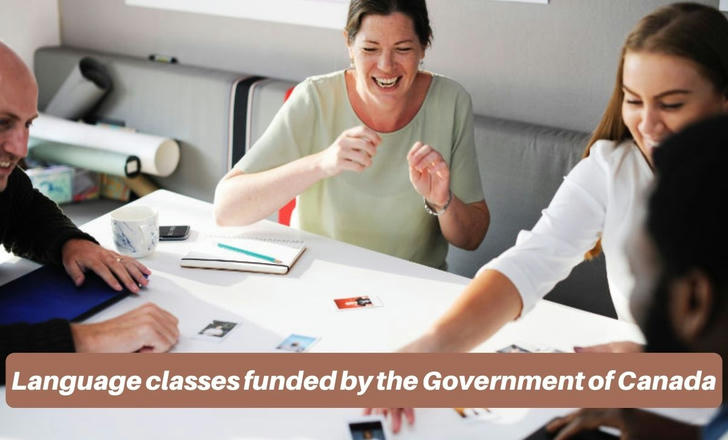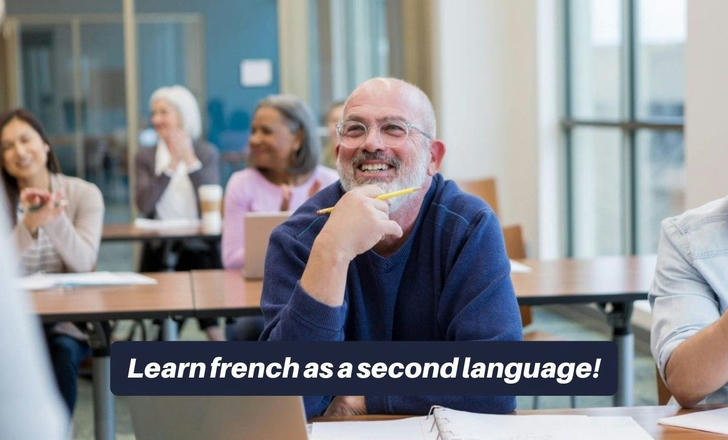Government Funding Options for Franch Study in 2024 You Should Know
Bilingualism is a key aspect of Canada's cultural identity, and knowing both French and English can open doors to numerous opportunities. Recognizing this, the Canadian government and several institutions offer free French learning programs across the country. These initiatives aim to promote bilingualism and provide accessible language education for residents, immigrants, and professionals alike.

Eligibility Criteria for Free French Learning
Most free French programs are designed to serve a variety of learners:
Newcomers and Refugees: Programs like Language Instruction for Newcomers to Canada (LINC) often offer free French courses to help immigrants integrate into Canadian society.
Canadian Residents: Long-term residents, job seekers, and professionals can also access these programs to enhance their employability and career prospects.
Students and Workers: Specialized courses cater to those who need French for academic or professional purposes, particularly in bilingual provinces like Quebec, Ontario, and New Brunswick.
Types of French Courses Offered
Canada's free French learning programs provide a variety of courses tailored to different proficiency levels and goals:
• General French as a Second Language (FSL): Available for beginners to advanced learners, these courses focus on foundational language skills.
• Specialized Programs: Courses are also available for conversational French, business French, and even French specific to certain industries, such as healthcare or government jobs.
Program Providers Across Canada
Numerous institutions and organizations offer free or subsidized French learning:
• Government-Funded Programs: LINC, administered by Immigration, Refugees and Citizenship Canada (IRCC), provides free French and English lessons to eligible newcomers.
• Public School Boards: Many school boards across provinces like Ontario and Quebec offer adult education programs where free French courses are available.
• Community Centers and Online Platforms: Non-profit organizations and community centers also provide accessible French courses, and some provinces offer online learning to accommodate diverse schedules.
Course Formats and Availability
Canada's free French learning programs offer flexible learning options to suit a variety of needs:
In-Person and Online Options: Learners can choose between traditional classroom settings or online platforms for distance learning. Many programs also offer hybrid options.
Flexible Schedules: Whether you're a working professional or a student, most programs offer part-time, full-time, and evening courses to fit your schedule. Regional programs differ based on the province:
• Ontario: Offers extensive French learning through programs like the Ontario Immigrant Nominee Program (OINP).
• Quebec: Strongly emphasizes French with courses offered by the Ministry of Immigration, Francisation, and Integration (MIFI).
• British Columbia: Provides French learning through institutions like Collège Éducacentre.
How to Apply for Free French Programs
The process for enrolling in a free French learning program typically involves:
• Checking Eligibility: Visit the official websites of government-funded programs or local school boards to review eligibility requirements.
• Submitting Documentation: Some programs may require proof of residency or immigration status, especially for newcomers.
• Enrollment: Applications can often be completed online, with quick turnaround times for admission.
Benefits of Learning French in Canada
Learning French through these programs offers several advantages:

• Career Advancement: Bilingual professionals are highly sought after in many sectors, including government, education, and healthcare.
• Social Integration: For newcomers, learning French helps foster community ties and improves communication in predominantly Francophone areas.
• Cultural Enrichment: Beyond practical advantages, speaking French offers a deeper connection to Canadian culture and history.
Success Stories
Many individuals have successfully leveraged free French programs to enhance their careers and personal lives:
John, an immigrant from Nigeria, used the LINC program in Ontario to gain conversational fluency in French, which helped him secure a job in federal government services.
Maria, a resident of Quebec, took free French courses at her local community center and improved her French for work in healthcare.
These stories highlight how free French learning can transform lives and open doors to new opportunities.
Conclusion
Canada’s free French learning programs provide a valuable pathway to bilingualism for residents, newcomers, and professionals. Whether you're looking to improve your career prospects, integrate into Francophone communities, or simply enrich your personal skills, these accessible programs offer something for everyone. Don’t miss out—explore the opportunities available in your area today!
